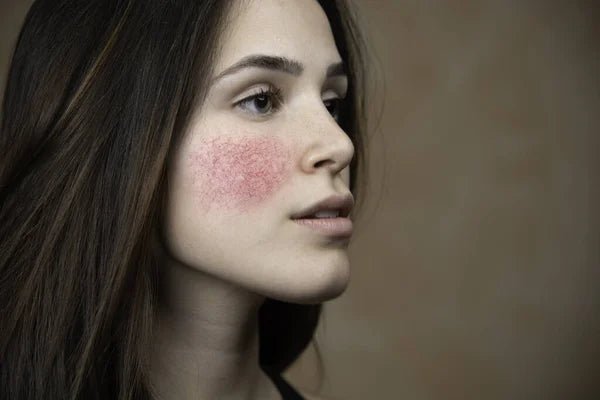
Rosacea treatment: Ayurveda Way
Share
Jagrit Choudhary, with her 10 year experience with natural skincare and remedies shares important points for the treatment of the most common skin problem - Rosacea.
Rosacea is a chronic condition that causes inflammation of the skin on the face, particularly on the cheeks, nose, and forehead. Symptoms include redness, flushing, visible blood vessels, and pimples. Ayurveda, an ancient Indian system of medicine, offers a holistic approach to treating rosacea.
According to Ayurveda, rosacea is caused by an imbalance in the pitta dosha, which is responsible for metabolism, digestion, and the body's ability to process heat. To treat rosacea, Ayurveda aims to restore balance to the pitta dosha by addressing the underlying causes of the imbalance, such as stress, poor diet, and toxins in the body.
One of the primary ways to restore balance to the pitta dosha is through diet. Ayurveda recommends a diet that is cooling and grounding, such as vegetables and fruits, whole grains, and legumes. Foods that are spicy, sour, or fried should be avoided, as they can aggravate the pitta dosha and worsen rosacea symptoms.
Herbs and supplements are also commonly used in Ayurvedic treatment for rosacea. Turmeric, licorice root, and neem are known for their anti-inflammatory properties and can help reduce redness and inflammation. Aloe vera gel applied topically can also help soothe irritated skin.
Lifestyle changes are also important in Ayurvedic treatment of rosacea. Ayurveda recommends practicing yoga, meditation, and pranayama (breathing exercises) to reduce stress and promote relaxation. Additionally, it is recommended to avoid exposure to heat and sun, and to limit the use of harsh skin care products.
It's important to note that rosacea treatment may take time and may vary based on the individual. A qualified Ayurvedic practitioner should be consulted for personalized treatment plan.
In summary, Ayurveda offers a holistic approach to treating rosacea by addressing the underlying causes of the condition and restoring balance to the body. This can be achieved through dietary changes, herbal supplements, and lifestyle adjustments. Consultation with a qualified Ayurvedic practitioner is recommended for a personalized treatment plan.